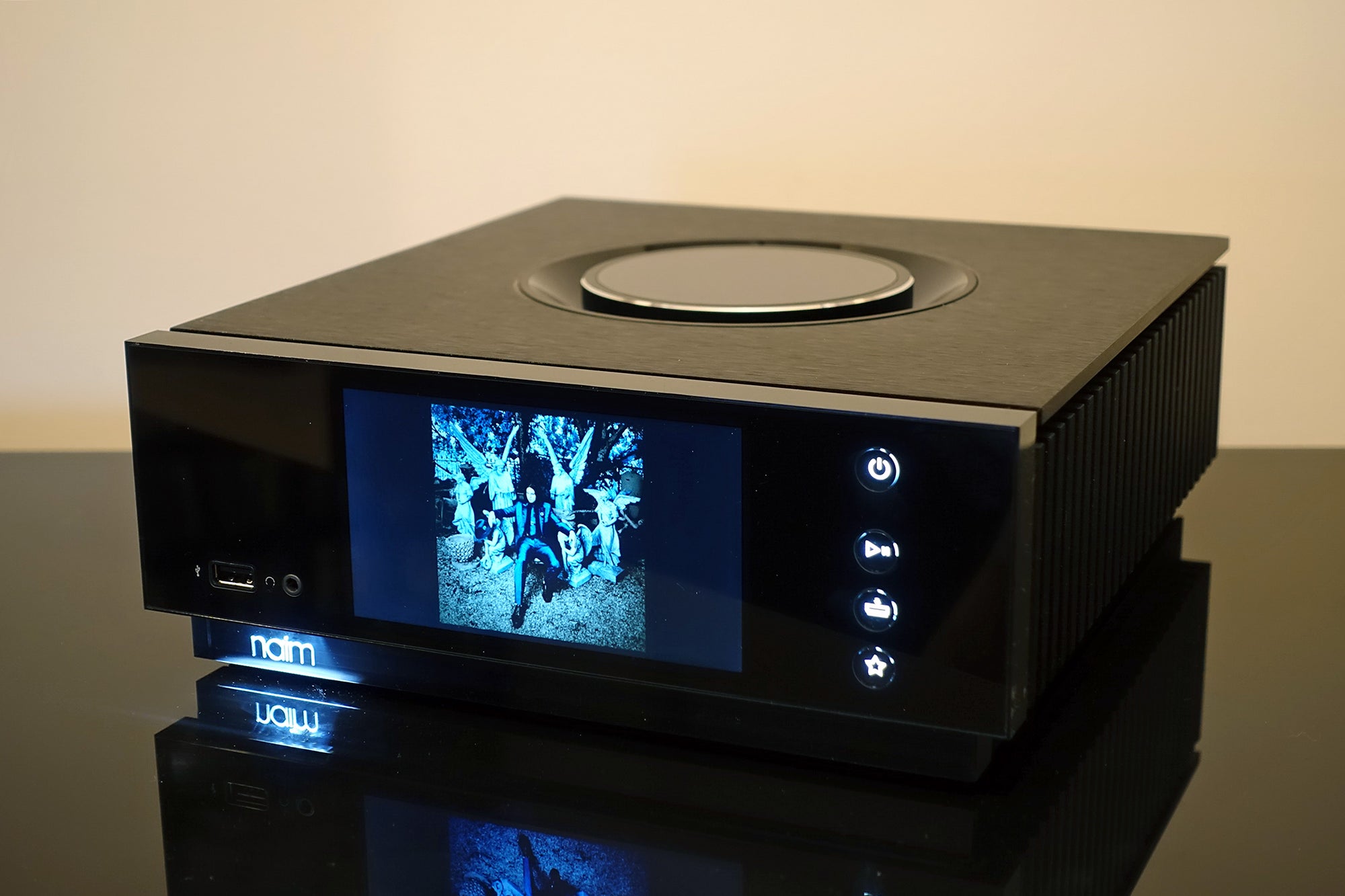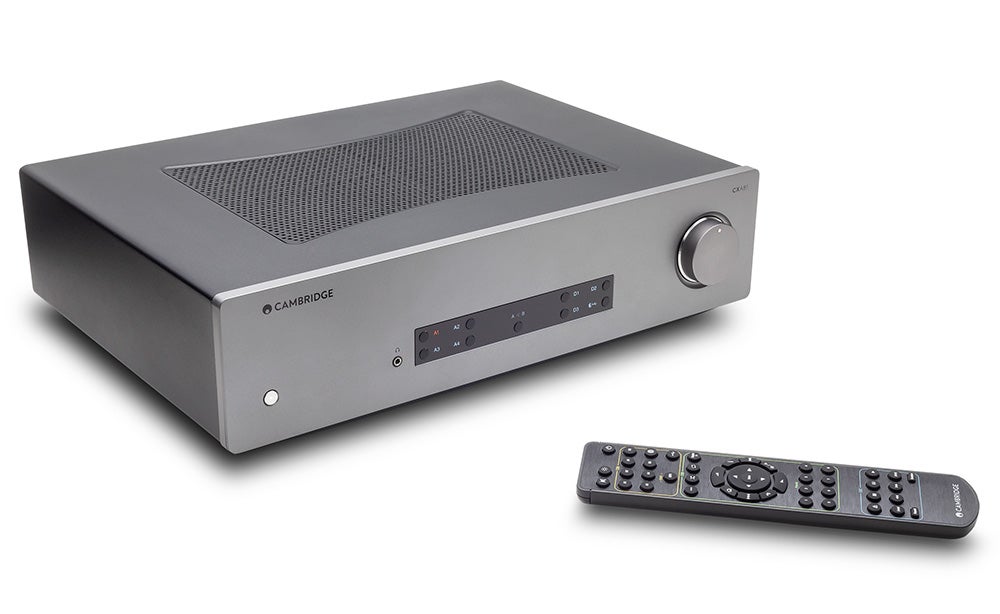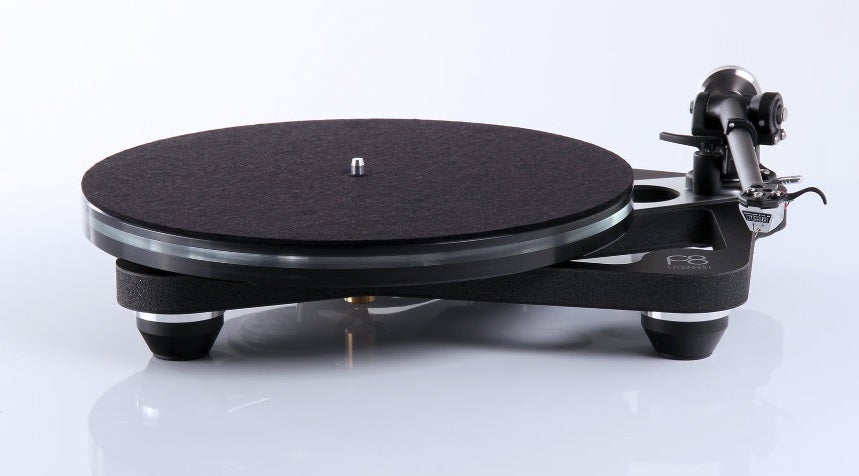Lenco L-92WA Review
A walk on the mild side
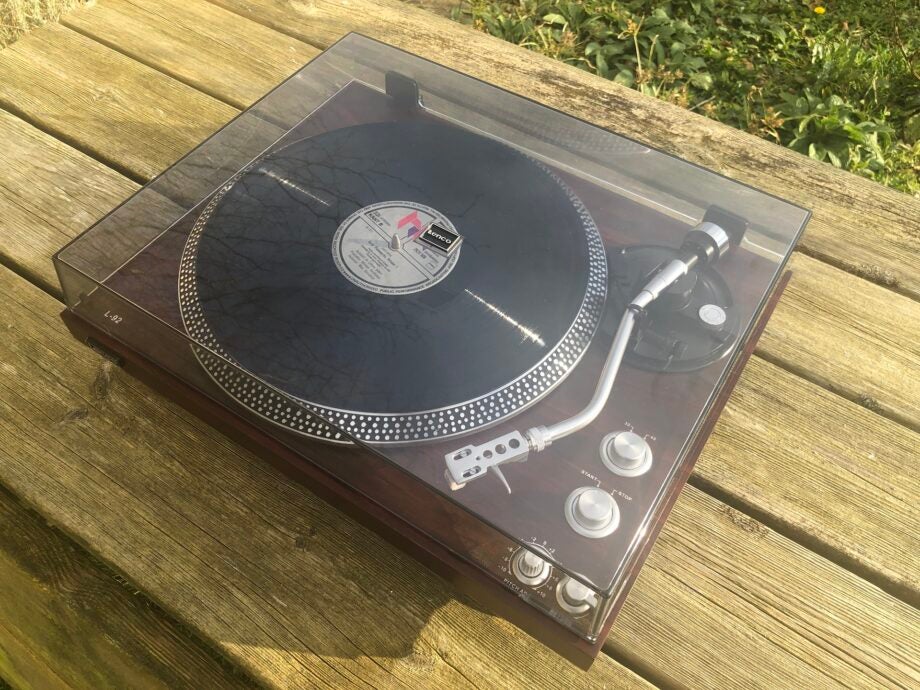
Verdict
Decent looks, nice build and a fistful of functionality carry the Lenco L-92 so far… but the sound it makes can’t take it any further.
Pros
- Extensive specification
- Makes listenable digital copies
- Decent build quality
Cons
- Doesn’t enjoy dynamic variations
- Mediocre phono stage
- Matter-of-fact sound
Key Features
- Phono stageFeatures an integrated switchable phono stage
- PC connectionADC for making digital copies
Introduction
It isn’t easy to drag technology as old as this into the 21st century, but with the L-92WA turntable Lenco makes a decent attempt.
It’s as system-agnostic as these things will ever get, it can help archive your vinyl to a computer, and it’s simple to set up and operate. All while looking exactly as you expect a record player to look.
This is hardly a unique product, however. Lenco joins an ever-increasing number of brands keen to sell you a super-convenient turntable without charging an arm and a leg for it. So there isn’t a lot of wriggle-room here: if the L-92WA doesn’t operate and, most importantly, sound like the money’s-worth, it’s done for.
Availability
- UKRRP: £239
- Canadaunavailable
- Australiaunavailable
The Lenco L-92WA is on sale now, for an asking price of £239 in the UK. Lenco, like a lot of brands with a product catalogue that goes on and on, doesn’t release every single one of its products into every single market – so, as yet, there’s no guarantee the L-92WA will make it to the US or Australia. If it does, though, then exchange rates indicate prices of around $319 and AU$449.
The L-92WA by no means has this field to itself. Very similarly specified turntables from credible brands such as Audio-Technica, Pro-Ject and Sony can be yours for similar money, so the L-92WA has to do a little more than just show up and work properly…
Design
- Automatic operation
- Belt drive
- Dust cover included
It’s a brave brand that messes with the fundamental design of a record player – and by ‘brave’ I mean ‘foolish’. That’s not Lenco, of course… and so the L-92WA looks exactly as you might expect.
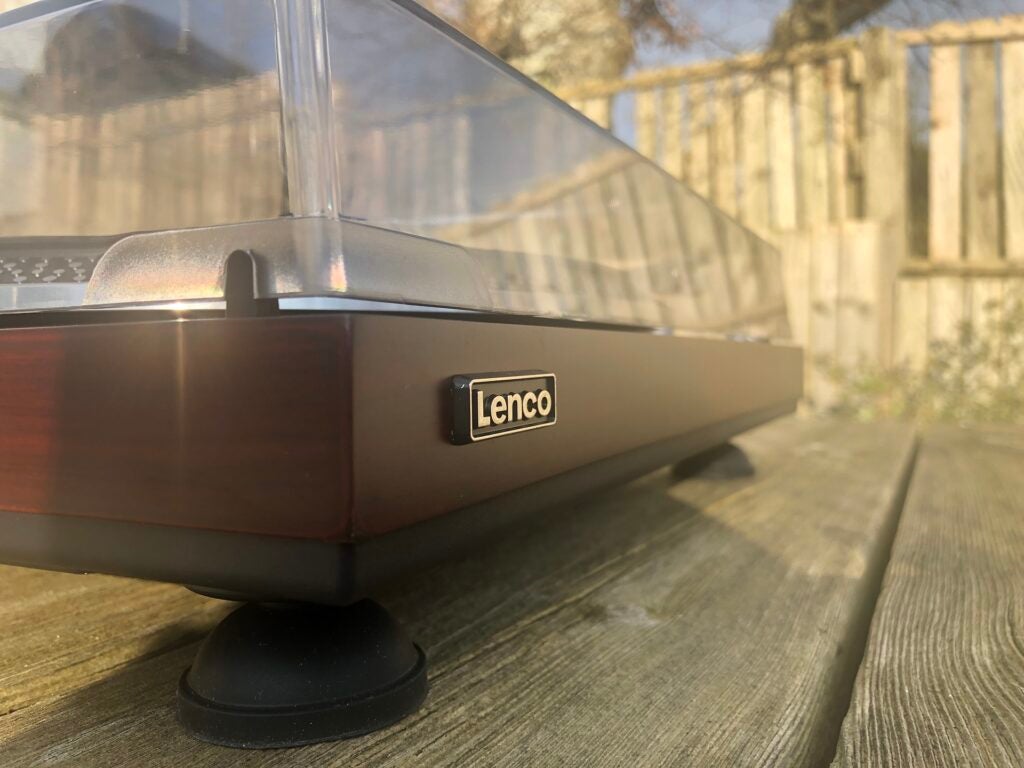
A walnut-effect plinth supports an aluminium platter, tone-arm and all the necessary controls on the top, with pliant rubber feet (in order to reject vibration) on the bottom. The platter is turned using a belt-drive arrangement, and there’s a hinged dust cover included to keep your records spick and span.
Admit it, you’d be confused and a little bit fearful if it were any other way.
Features
- USB output
- Integrated phono stage
- Pre-fitted Audio-Technica cartridge
You can’t argue with the sheer amount of stuff that Lenco loads onto the L-92WA. I wonder if there’s ever been a turntable more generously specified.
The L-92WA is a belt-drive turntable, with an aluminium platter being towed around at either 33.3 or 45rpm. The motor assembly sits inside a walnut-effect plinth, which is supported by four hefty, pliant feet designed to reject incoming vibrations. It comes with a dust cover, which is attached via two hinges at the rear of the plinth.
The J-shaped aluminium tonearm comes pre-fitted with a very agreeable Audio-Technica AT3600 cartridge, with set-up basically consisting of adjusting tracking and anti-skate settings. The L-92WA is a semi-automatic design, which means that when you lift the tonearm out of its cradle and move it over the record, the platter starts spinning automatically. It also means the tonearm will return to rest when it reaches the end of the record, and the platter will stop spinning.
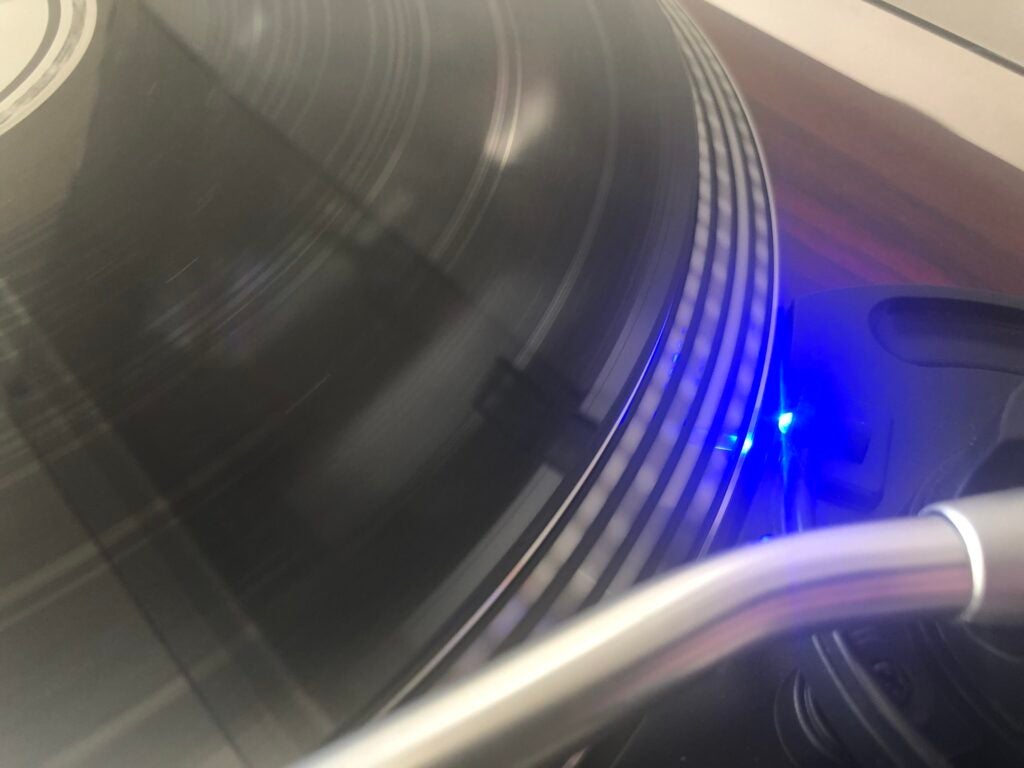
Moving the arm activates the stroboscope, too – the L-92WA is fitted with pitch control of +/- 10%, which is handy should you own some particularly light or heavy records. However, it’s next-to no use for DJing given the belt-drive configuration.
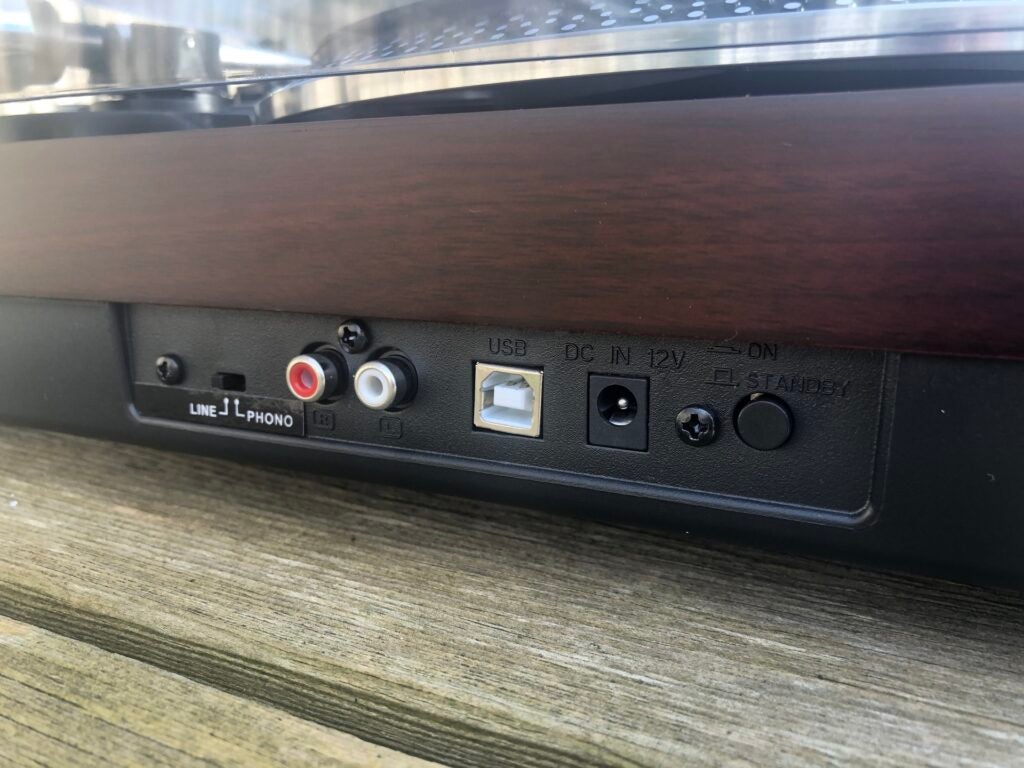
At the back of the chassis is a connection for mains power and a ‘power on/off’ button. There are also stereo RCA outputs for connection to an amplifier, and a switch to toggle between ‘line level’ and ‘phono’ output level. The Lenco is able to connect to any amplifier, whether or not the amp has a phono stage – if it does, the user can experiment to see which of the phono stages they now own is most effective.
There’s also a USB-B output for connection to a computer – the L-92WA’s analogue-to-digital conversion circuitry allows you to make digital copies of your vinyl. There’s a lot of free software knocking about to help you achieve this. Personally, I like Audacity – it’s free, logical and pretty effective.
Sound Quality
- Short of drive and dynamism
- Uninvolving digital copies
- Mediocre phono stage
On first acquaintance, there seems little about the way the L-92WA sounds that’s in any way offensive. Listen a little longer, though, and not only does that careful inoffensiveness become slightly offensive in and of itself, but more tangible chinks in the Lenco’s sonic armour reveal themselves.
No matter what you play (and for this test the L-92WA played everything from Erik Satie to Explosions In The Sky), the Lenco adopts a strict policy. It isn’t in the business of startling the listener, and to that end it seeks to make all music exist on a comfortable, unthreatening level.
Some of the virtues for which the vinyl format is celebrated are evident here. Timing and integration of the frequency range is pretty smooth and, consequently, quite convincing. The expression of rhythms and tempos is enjoyably naturalistic, too. And there’s notable depth and pleasant warmth to the L-92WA’s low-frequency response.
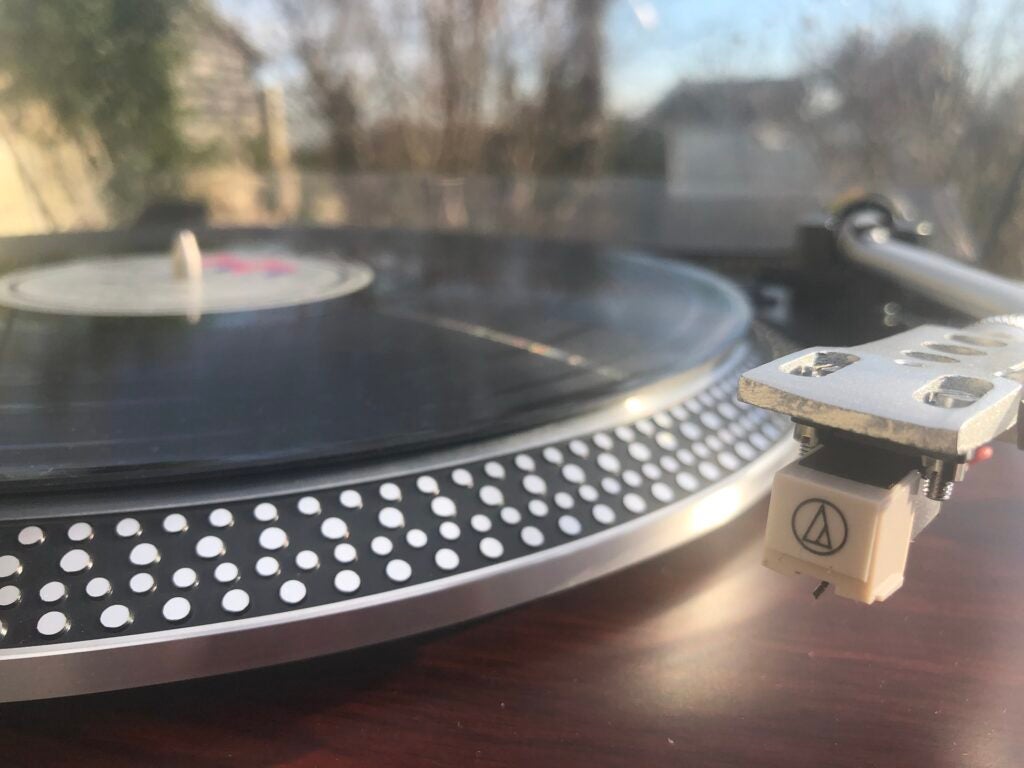
Of dynamic expression, though, there is very little. Everything, no matter if it’s solo piano or two guitars, bass and drums charging into a crescendo, happens at a consistent level – one best described as ‘tepid’. There isn’t a huge amount of animation to the way the Lenco sounds, and when things take a turn for the rowdy (as they do regularly where Explosions In The Sky is concerned), the L-92WA isn’t at all comfortable. It gets shouty when really it just needs to get louder.
All of this assumes the phono stage in your system (should it have one) is superior to that fitted to the Lenco. The internal amplification here sounds both breathless and coarse – which is no help whatsoever in helping the deck’s dynamic response or (lack of) insight into the finer details of a recording. The harmonic variations that should be apparent in the Satie pieces pretty much disappear.
And it’s a similarly one-note story where the Lenco’s digital copies are concerned. At some point (almost certainly in the analogue-to-digital process, I’d speculate), the L-92WA basically neuters music. Any drive or animation that’s discernible via its RCA outputs has pretty much disappeared by the time the information reaches your computer.
Latest deals
Should you buy it?
You crave convenience The L-92WA has every creature comfort you could realistically expect.
You like to be engaged by music The Lenco sound is matter-of-fact.
Final Thoughts
It’s never a good sign when the question “but who will want it?” is uppermost in the listener’s mind…
How we test
We test every turntable we review thoroughly over an extended period of time. We use industry standard tests to compare features properly. We’ll always tell you what we find. We never, ever, accept money to review a product.
Find out more about how we test in our ethics policy.
Tested for more than a week
Tested with a range of vinyl records
FAQs
Yes, there’s a USB connection for ripping records to digital files. We’d suggest Audacity as the program to convert vinyl to digital.


